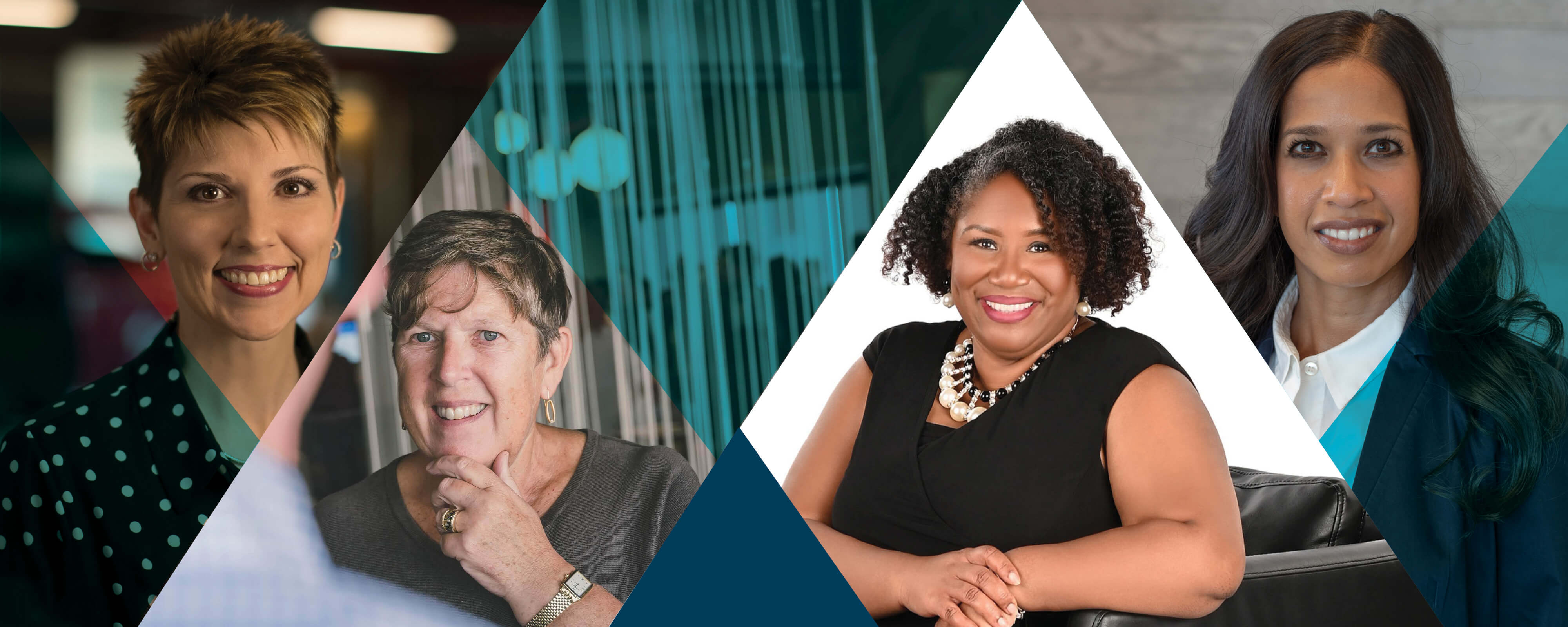Copyright ©2021 Capital One. Opinions are those of the individual author. Statements are deemed accurate at the time of posting. Unless otherwise noted, Capital One is not affiliated with, or endorsed by, any company mentioned. All trademarks and intellectual property used or displayed are the property of their respective owners.
Tips For Owning Your Voice & Story at Work
Since 2019, Capital One has partnered with Boss Women Media–an organization committed to empowering & educating Black women. Core to our partnership is our shared commitment to support and celebrate the achievements of women of color in business, entrepreneurship and at home.
On August 21-22, 2021, Boss Women Media and Capital One hosted the two-day Black Girl Magic Digital Summit for women of color with programming focused on empowering attendees to take ownership of their careers and financial futures and brought forward resources and thought leadership to an audience of over 20,000 that promoted growth, learning and a sense of community for women of color.
Read top tips for how to own your voice and story, secure work champions and position yourself for advancement from Capital One leaders Shavonne Gordon, VP of Diversity Recruiting, and Kanika Raney, Senior Director of Diversity Recruiting, who came together for an open and honest conversation about the barriers women of color face in the workplace.
Owning your voice and story at work—It may sound daunting to uncover your passions, embrace your unique opinion and own who you are. But having the opportunity to speak and not being prepared to—or being afraid to—can be a wasted opportunity for yourself and for those around you. Understanding your passions and unique perspective is the first step to owning your voice. No one else can have your voice or offer what you can say. Your perspective, because of all that you bring with it, means something completely different because it comes from you. Use your words and power to change people and things around you. Practice saying the words out loud. It will become easier over time and the more you practice using your voice. Stay confident—don’t let fear hold you back! You don’t want to miss out on the opportunity of being heard.
Dismantle negative self-talk—Remaining strong in who you are and your identity in the workplace can be hard, especially if you feel like you aren’t being heard, miss a moment to speak up or don’t yet have a seat at the table. Overcome the voices that say you’re not good enough. Challenge your perceptions of negative self-worth so they don’t become part of your narrative. Write down the negative talk—the “should have, could have, would haves”—and then write down all the reasons it’s not true. Record affirmations that you can listen to as you start your day or write them down and keep them nearby to use as touchstones throughout your day. Find your people—those who help redirect you from negative self-talk and remind you of the things you’re doing well.
Develop your personal Board of Directors—Identify who you need in your circle to help address barriers you’re experiencing in the workplace. Find people who aren't afraid to tell you what you can be doing differently. Find someone who shares the same type of energy space—people who are moving forward, people who are where you want to be. Women, particularly Black Women, don’t get actionable feedback. Your people need to be able to give you that feedback, no matter how hard it might be to hear.
Find mentors to advise on specific skills and situations—Mentors are important, especially for women, to continue to grow and address some of the inequities that exist in the workplace. The relationship provides an opportunity to learn and acquire wisdom from others who are succeeding. A mentor is typically someone you need for a point in time, often for coaching about a particular situation, skill or circumstance. A good guide to mentorship is to have someone who is both at least one step above you and a peer mentor. Consider paying it forward—pass on your wisdom by mentoring someone, too!
Find a Sponsor and Advocate—You can better position yourself for advancement by getting a sponsor—typically someone more senior who can create opportunities for you and provide specific coaching. Typically, you don’t just ask someone to be your sponsor—you can identify potential sponsors through relationships you build through your work. Maintaining the relationship is key. Former leaders are great advocates and sponsors, because the relationship is already there, they know your work and they’ll be willing to advocate for you. Remember, as the person being sponsored, you’ll need to help your sponsor tell your story and to speak and advocate on your behalf.
Join a Business Resource Group (BRG)—BRGs like Capital One’s Voices, a group that helps create community for Black associates and allies, offer programming for members that support growth and develop networking opportunities. Voices, for example, offers a program called Magellan for those who may be earlier in their career or may not know what career they aspire to. The program helps associates build their brand and vision. BRGs can often help identify sponsors. Plus, you tap directly into a network who can help forge those relationships, particularly with senior leaders who really do want to help. Capital One has also started to leverage lean-in circles, smaller groups within the BRG who come together for real talk and peer support.
Keep the future firmly in mind—Think about the girls and women in your life who will come after you, and the legacy of opportunity you can leave for them. Look around the virtual tables you sit at and find ways to pull up others while supporting–pushing up—those who sit with you already. Use your seat, despite how uncomfortable it may be, because you’re opening doors for those who aren’t yet there with you. While it’s not always easy, it IS possible.
Related Content
-

Black at Capital One: Elevating Black Associates Through Leadership and Learning
VOICES, the BRG for Black associates, helps drive Diversity, Inclusion & Belonging for group members—and fosters an inclusive environment for all associates.
-

A Leader’s Journey To Connect Women in Tech
Learn why Cat, a leader in Machine Learning, is passionate about women’s empowerment and creating more opportunities for diverse tech candidates.
-

Change, Setbacks and Success: Important Leadership Lessons To Embrace
Learn from 4 women in leadership as they share their career journeys, including lessons learned, setbacks they faced and how to handle change.
All Jobs
- Senior Software Engineer R235869
- Senior Director, Cloud Architecture Risk Oversight R235994
- Senior Data Product Manager R232897
- Lead Software Engineer - Backend R215598
- Principal Associate, Ontology and Data Modeling- Retail Bank R231553
- Principal Finance Specialist (Financial Planning & Analysis) R236031
- Principal Associate - Senior Software Engineer R220127
- Manager, Product Manager - Enterprise Payments - OnePay R229597
- Manager, Product Management - Retail Bank Data R234213
- Distinguished Machine Learning Engineer - Bank Tech R233799
- Manager, Data Scientist - Model Risk Audit R235877
- Senior Software Engineer (Back End) R235945

